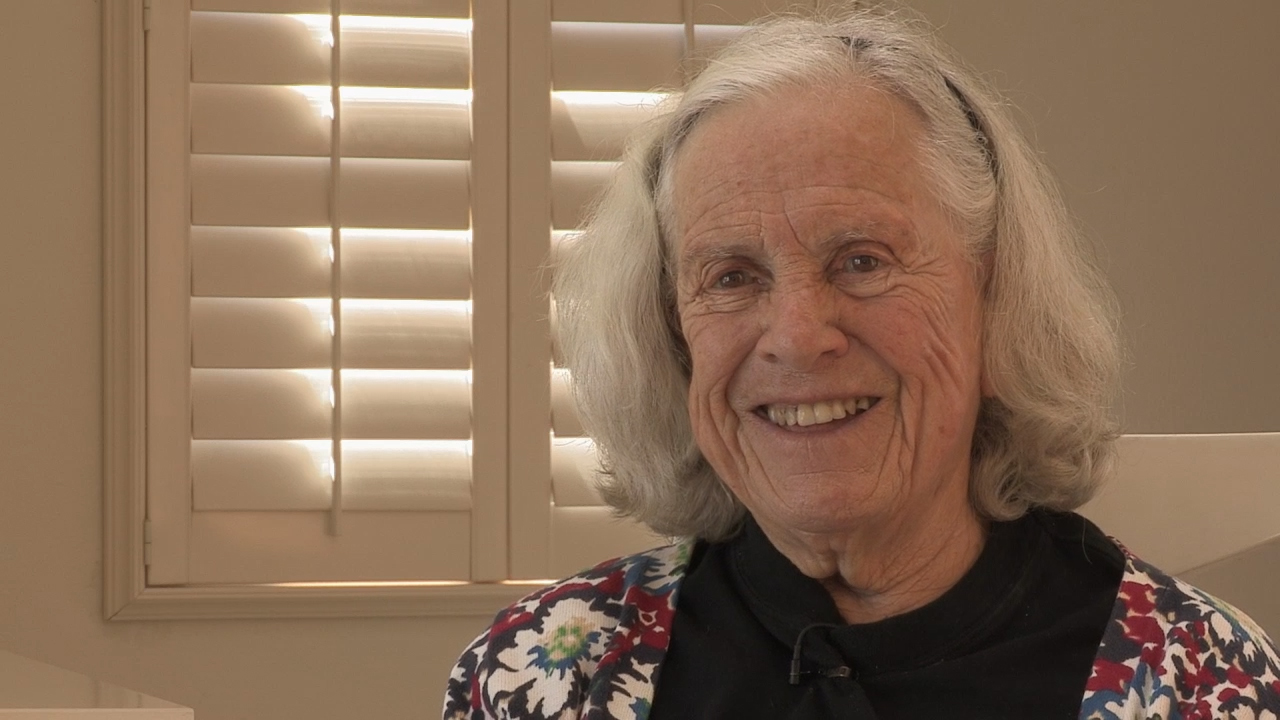NEXT STORY

My work and career: On becoming a woman scientist
RELATED STORIES

NEXT STORY

My work and career: On becoming a woman scientist
RELATED STORIES


When Richard went to MIT, they decided he was so well prepared that none of the kids from Far Rockaway High School had to present any exams to get in.
When you apply to a college, most colleges you apply you want to be a scientist, you want to be an artist, they give you an examination to see if you're up to what they want in their university that they think they can train you. And MIT used to give exams in math to people who were graduating from Far Rockaway High School and wanted to go to MIT. But when he got to MIT, they decided he was so well prepared that they didn't have to give exams from anybody from Far Rockaway. I don't know how long that lasted.
[Q] Are you saying that Far Rockaway High School was very special?
I guess so. How many Nobel laureates did we have, six?
[Q] I know three, Blumberg, Richter, Feynman.
There were a couple more.
[Q] And a couple more. And Bernie Madoff.
Don't say that. You know that name?
[Q] Yes, the crook.
A great thief.
[Q] Yes, the great thief.
Whatever they were, they were good at it.
When I went to it, most of the kids were from Jewish towns like mine. And on Jewish holidays, they sent a notice around of who was at school, not who was not at school because it was a sensible thing to do. The area also had big areas of black students, which meant that they were often two different kinds of classes, one, mostly white and the other mostly black. Because apparently, the black parents didn't care much about whether their kids did well in school or not so they didn't, but they did very well in baseball and things like that. That was their culture. This was when I was in high school. Let's see, I was 15. I'm now 92. So we're talking about ancient things that should not be believed to continue. And occasionally, there was a black student.
So there were two classes. So when I say there was a black class and a white class, that indicates there were the same number of black kids in the big areas as there were white kids. And the black kids would try to tease the white kids, but not me. Because when I was a kid in kindergarten and we had to go down to the bathrooms... The kindergarten that I was in was all white except three little girls. And I noticed that one little girl had nobody to take their hand. So I got in line next to her and took her hand and she was so pleased and so were all the other black kids.
So all through my grammar school, I would hear people say, 'She's okay with black kids. She's okay'. So that was nice.
[Q] Far Rockaway High School, was it a good school?
Depending on? It was a good school. It was a public school. It was as good as the students who came to it. And what was it we did? We had a principal for a while who decided we should not wear galoshes and raincoats to go to school. And we should not wear slacks, the girls should wear dresses. Well, it's raining there. So we took it for a while and then we quit going and she had to change the rules. We either quit going or everybody came in slacks or something like that, but we revolted.
OK. I had some very good teachers. It really did that... It was during the Depression, the '30s Depression, and so a lot of people couldn't find jobs. And they found jobs in high schools teaching where they had PhDs. And so yes, there were some very good teachers. Besides the gang of gangs which was in high school.
There is, by the way, a street now in Far Rockaway called the Feynman Way in honor of Richard Feynman. It goes from where we live to the high school.
Joan Feynman (1927-2020) was an American astrophysicist. She made important contributions to the study of solar wind particles and fields, sun-Earth relations and magnetospheric physics. In particular, Feynman was known for developing an understanding of the origin of auroras. During her career, Feynman was an author or co-author of more than 100 scientific publications. She also edited three scientific books. In 2002, she was awarded NASA's distinguished Exceptional Achievement Medal.
Title: My work and career: Schooldays
Listeners: Christopher Sykes Alexander Ruzmaikin
Christopher Sykes is an independent documentary producer who has made a number of films about science and scientists for BBC TV, Channel Four, and PBS.
Tags: Rockaway High School
Duration: 7 minutes, 36 seconds
Date story recorded: April 2019
Date story went live: 05 November 2019